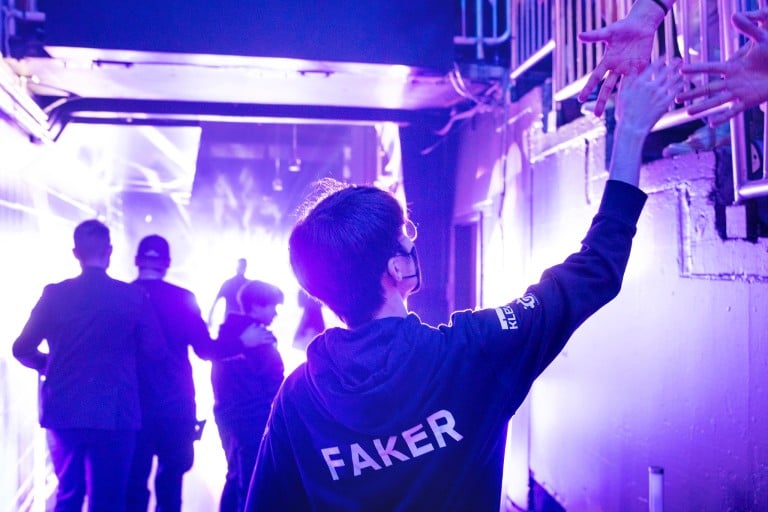To truly grasp the significance of South Korea’s gold medal win in League of Legends at the Asian Games in Hangzhou, one must delve into the team’s tournament history and the country’s rich past. South Korea, like several other nations, mandates military service for its citizens, a practice established after World War II. While primarily a defense measure against North Korea, military service has become deeply ingrained in Korean society, profoundly impacting the lives of young men.
There are limited avenues to avoid military service, but one clear path is winning a gold medal at either the Olympics or the Asian Games—a feat accomplished by South Korea’s League of Legends team.
This marks the first time that League, and esports in general, has been recognized as a medal event at a major international competition like the Asian Games. It signifies a monumental step not only for League’s global presence but also for the potential of esports as a whole to share the stage with renowned sporting events worldwide.
The Asian Games, officially titled the 2022 Asian Games despite being held in 2023 due to COVID, classifies esports under the subcategory of “Mind Sports,” alongside games like Chess, Go, and Bridge. Winners in these sports receive Asian Games medals in addition to participating in traditional medal ceremonies, just like athletes in conventional sports.
The esports category at this year’s Asian Games includes League of Legends, Dota 2, EA Sports FC Online, PUBG Mobile, Arena of Valor, Dream Three Kingdoms 2, and Street Fighter V: Champion Edition. Initially, Blizzard’s Hearthstone was also scheduled to be part of the medal events, but it was removed due to the shutdown of Blizzard services in mainland China.
Thirteen countries fielded League teams this year, including South Korea, China, Chinese Taipei (Taiwan), Hong Kong, Japan, India, Kazakhstan, Palestine, United Arab Emirates, Maldives, Macau, Thailand, and Vietnam.
Team Korea’s roster comprised seasoned League player Lee “Faker” Sanghyeok, alongside Park “Ruler” Jaehyeok, Seo “Kanavi” Jinhyeok, Jung “Chovy” Jihun, Ryu “Keria” Minseok, and Choi “Zeus” Wooje. Most of these players have had remarkable seasons and are now setting their sights on Worlds 2023 following their triumph at the Asian Games.
Zeus, Faker, and Keria hail from T1, the runner-up team in the 2023 LCK Summer Season, while teammate Chovy was part of the victorious Gen.G team. Ruler and Kanavi are currently the only Korean players on JD Gaming, a Chinese team.
This year, Worlds will take place in South Korea, with venues in Seoul and Busan, heightening the potential for an extraordinary season for Korean players.
While the victory over Team China at the Asian Games holds immense significance, as it sent them to the bronze medal match, the exemption from military service is perhaps an even greater reward. Esports athletes have never before earned an exemption based on their gaming prowess.
Military service in South Korea typically lasts between 18 to 21 months and must be completed before the age of 35. All Korean male citizens undergo a physical examination at 18 to assess their physical capabilities for service duties. After enlisting and completing rigorous boot camp training, men serve in assigned positions until their discharge.
Every Korean male citizen must be evaluated for military service eligibility, and exceptions for physically fit individuals are exceedingly rare. Even global K-pop sensations BTS were not granted military service exemption, as the defense minister cited concerns of “fairness” in a decision that likely involved subjective judgment.
However, for South Korea’s League stars, the benchmark for exemption was clear: win gold at the Asian Games. With their victory over Chinese Taipei, securing a 2-0 win, all six players will now receive military exemption alongside a gold medal that holds a place of honor among their other hard-earned trophies. This achievement in one of esports’ groundbreaking titles is truly making history.
About the author
Source: DOTESPORTS






